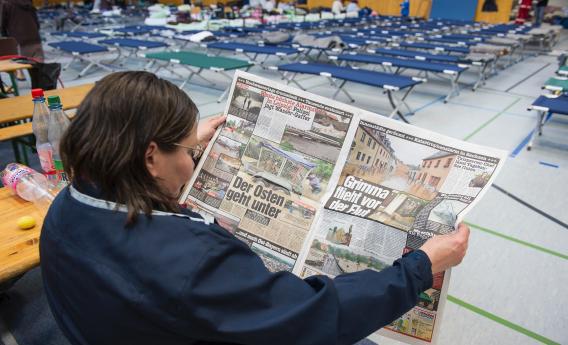Gross, it’s Monday, and here are some painful results from a study funded by the U.K. government. I’m just going to say them, like ripping off a Band-Aid: Women throughout the world—in Australia, Canada, Colombia, Greece, Italy, Japan, Korea, Norway, the U.K., and the U.S.—prove far less knowledgeable about the news than men.
In part one of the experiment, researchers broke down the sources included in print, Web, and broadcast outlets by gender and determined that, overall, quoted experts were more likely to be male. Thirty percent of television news sources, for instance, were women. (Does this revelation sound familiar? Last week, Amanda Hess mapped out the gender disparities in New York Times sourcing, explaining how the relative paucity of female voices in that paper had as much to do with journalists’ choices as it did with the imbalance of power in politics, academia, and business.) Part two of the study had men and women fill out quizzes on current events. Here the fellows showed a superior grasp of their countries’ public affairs: In the United States, for example, the average man answered 1 in 3 questions correctly, while the average woman could only get 1 in 5.
As Shannon Rupp notes for the Tyee , women—not men—are society’s most devoted readers. They have more formal education, get more invested in prose quality, and plough through twice as many fiction books every year. So why are we falling behind with the news?
The study authors have three theories. First, they say, women may still be recovering from a “historical hangover,” a remnant of the days in which their husbands declaimed in the agora while they concerned themselves with domestic life. Or perhaps women are the busier sex, with less time to peruse the paper. Or perhaps guys remain more prominent in current events, so women who would otherwise be interested stop tuning in, much as a fantasy fangirl might eventually turn off The Lord of the Rings.
Rupp echoes Hess when she proposes an additional theory: Alongside all those other factors, journalists frame the news in such a way as to alienate women. Ouch. But she has a point. When the Scottish tennis player Andy Murray won Wimbledon this summer, the London Times ran a headline hailing the first British champion in 77 years. Except, as Rupp points out, four female athletes had claimed the title since the last guy won in 1936. As writer Chloe Angyal tweeted, “Murray is indeed the first Brit to win Wimbledon in 77 years, unless you think women are people.”
Breaking: Women are people! It’s hard to imagine most members of the press challenging this headline. And yet journalists show, subtextually, that they don’t 100 percent buy it, and perhaps that’s why women seek out the truth elsewhere? Sad though it is that women appear to be less informed than men, especially in countries with “advanced gender equity,” the results don’t mean women don’t thirst for knowledge or care about current events. It just means we all need to try harder to align the world that gets represented in print with the one we live in.
